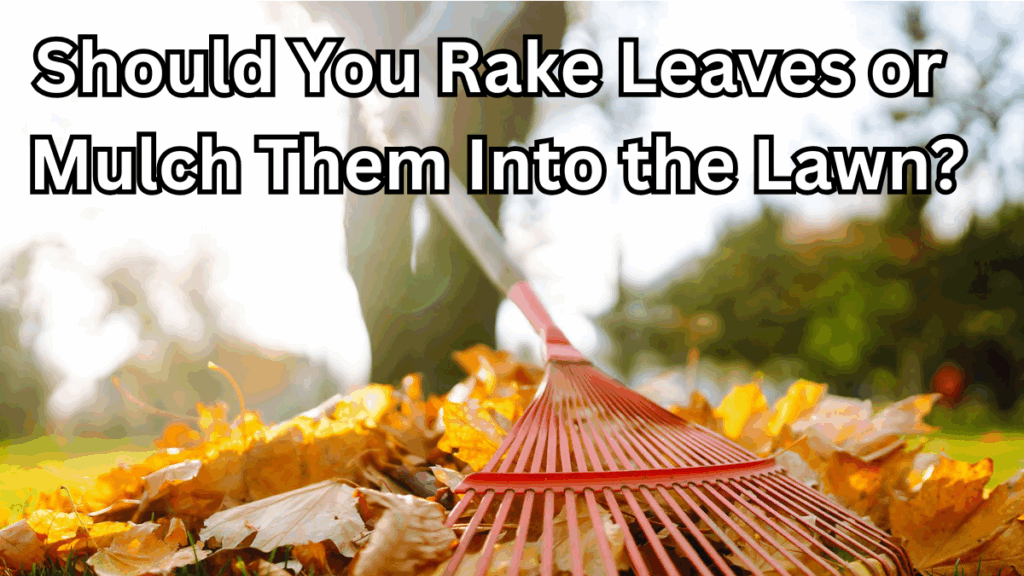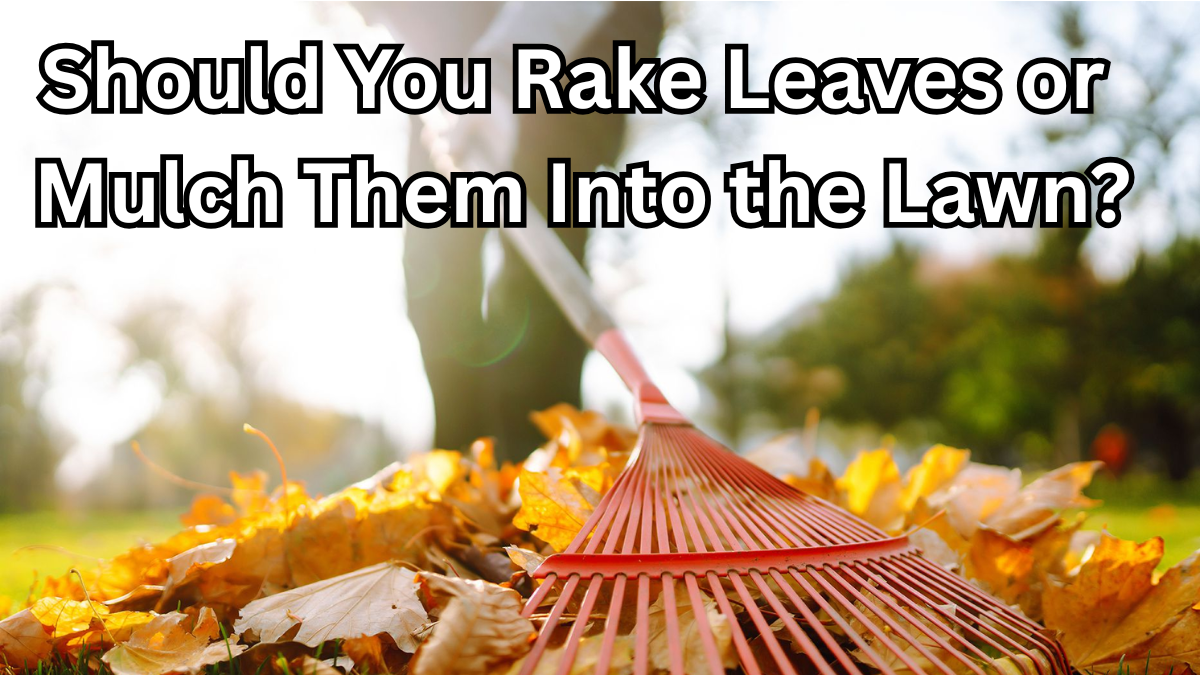Autumn is beautiful with its colorful leaves, but when those leaves blanket your lawn, a common question arises: should you rake or mulch leaves? Both approaches have their merits, and understanding them can save you time while boosting your lawn’s health.

Raking Leaves: Traditional but Time-Consuming
Raking leaves is the age-old method, and it’s satisfying to see a perfectly clean lawn. However, it comes with a few considerations:
Pros of Raking Leaves
-
Removes thick leaf layers that can smother grass
-
Prevents the formation of mold or fungal diseases
-
Keeps the lawn looking tidy
Cons of Raking Leaves
-
Labor-intensive and time-consuming
-
Leaves may end up in the trash instead of being reused
-
Can remove natural nutrients that decaying leaves provide
Raking works best if you have a very dense leaf fall or want a pristine lawn appearance. But it may not be the best for soil health or your schedule.
Mulching Leaves: Nourishment for Your Lawn
Mulching is gaining popularity among gardeners, and it involves chopping fallen leaves into fine pieces using a mulching mower. These tiny fragments can then settle into your lawn, enriching the soil naturally.
Benefits of Mulching Leaves
-
Provides lawn nutrition by returning organic matter
-
Reduces waste by keeping leaves on your property
-
Helps maintain soil moisture during dry periods
-
Encourages microbial activity, improving soil health
Tips for Effective Mulching
-
Use a mulching mower with sharp blades
-
Avoid mulching when leaves are wet and clumpy
-
Spread leaves evenly to prevent thick mats that may block sunlight
Debunking Common Thatch Myths
Many gardeners avoid mulching because of thatch myths, but most of these concerns are exaggerated. Thatch forms primarily from roots and stems, not decomposed leaves.
| Myth | Reality |
|---|---|
| Mulching leaves creates thatch | Leaves decompose quickly and add nutrients rather than harmful thatch |
| Mulching causes fungal problems | Properly mulched leaves reduce disease risk by enhancing soil health |
| Composting is better than mulching | Mulching directly enriches the lawn without extra labor or space for compost |
Mulching vs. Composting: Which to Choose?
While mulching returns nutrients directly to the lawn, composting allows you to store and use organic matter elsewhere. Here’s a quick comparison:
| Feature | Mulching | Composting |
|---|---|---|
| Labor | Low | Moderate to High |
| Time to Nutrient Return | Immediate | Weeks to Months |
| Lawn Impact | Direct lawn nutrition | Indirect |
| Equipment | Mulching mower | Compost bin or pile |
For most homeowners, mulching is the easiest way to boost lawn health while cutting down cleanup time.
Expert Tips for a Healthy Lawn
-
Mulch frequently rather than letting leaves pile up
-
Only mulch dry leaves for even distribution
-
Combine mulching with seasonal fertilization to maximize lawn nutrition
-
Use mulched leaves in flower beds or vegetable gardens to enrich the soil further
FAQs
1. Can I mulch all types of leaves?
Yes, most leaves can be mulched. However, very tough leaves like magnolia or holly may require extra chopping before mulching.
2. Will mulching leaves make my lawn look messy?
When done properly, mulching leaves results in finely shredded material that blends seamlessly with grass, providing nutrients without looking messy.
3. How often should I mulch leaves in autumn?
Aim to mulch every 1–2 weeks during peak leaf fall. This prevents large mats from forming and ensures lawn nutrition.
4. Is it better to rake or mulch leaves?
It depends on your goals. For soil health and nutrient return, mulching is ideal. If you want a perfectly clean lawn, raking works, but you may lose the benefits of natural composting.
Click here to learn more
